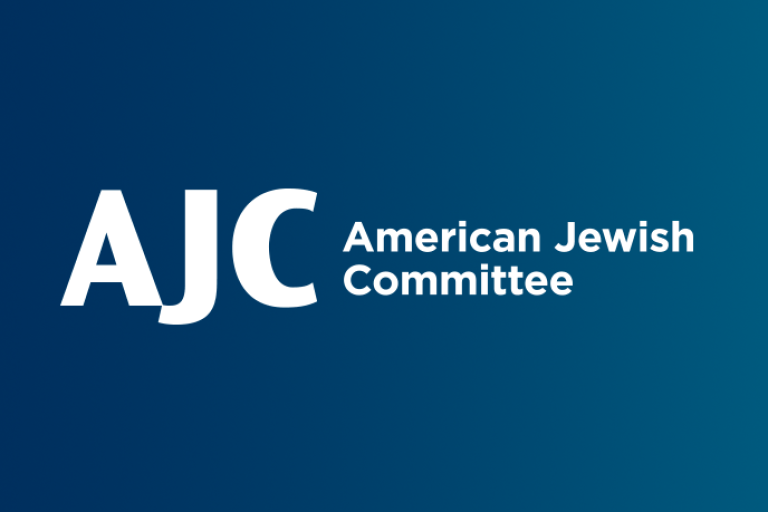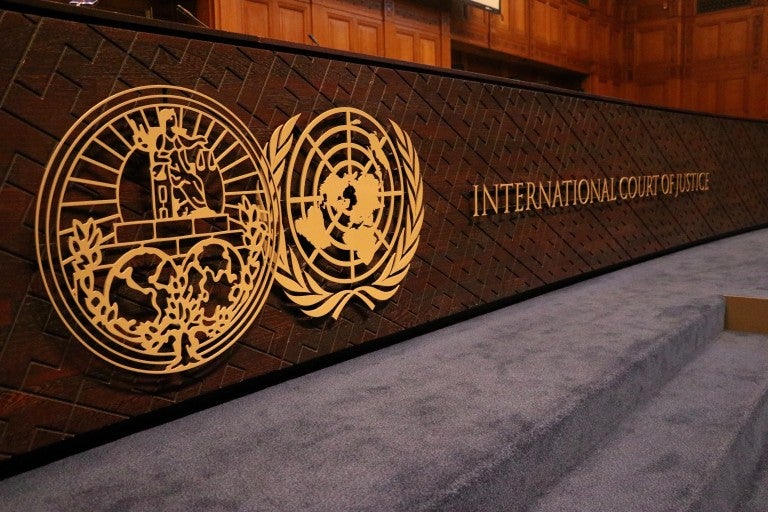November 9, 2023
The grotesque acts of violence and terror perpetrated by Hamas in Israel on October 7 – the most lethal assault against the Jewish people since the Holocaust, in which some 1,400 people were killed and some 240 abducted – horrified Jews and people of conscience around the world. Many international figures have generally condemned the violent acts, and several have explicitly recognized them as having been motivated by antisemitic animus and not solely political grievances.
Unfortunately, following the brutal October 7 attack and Israel’s subsequent military operation against Hamas in Gaza, Jews and Jewish communities around the world have seen a shocking, but disturbingly familiar, pattern reemerge: widespread popular attention to and concern about civilian harm occurring in the context of the conflict between Israel and Hamas has generated a dramatic surge of antisemitic hate speech attacking Jews – as well as physical attacks against Jews – because of their Jewish identity, implicitly or explicitly. The scale of these acts is not only alarming but unprecedented.
Since October 7, antisemitic hate speech has been amplified by prominent actors in many countries. It has reportedly proliferated on social media and technology platforms. In connection with this explosion of antisemitic hate speech, Jews around the world have reported experiencing violent attacks and threats, Jewish sites and property has been vandalized, and Jews have encountered discrimination committed by people who claimed to be motivated by political grievances, namely, opposition to Israel’s actions, rather than by antisemitic animus. The publicly available information collected below reflects trends and details of emblematic violent antisemitic incidents that have reportedly occurred since October 7 in the following 25 places: Argentina, Australia, Austria, Canada, Chile, China, Colombia, France, Germany, Greece, Italy, The Netherlands, Nicaragua, Pakistan, Portugal, Poland, Russia, South Africa, South Korea, Spain, Tunisia, Turkey, United Kingdom, United States, and Yemen. Neither this list of countries nor the incidents reported from each country is comprehensive.
Since October 7, several government leaders have recognized and publicly condemned rising antisemitic hate speech and taken measures to enhance protection for Jewish communities and sites, and some social media and technology companies have implemented tools and policies to reduce the visibility and reach of antisemitic content online. However, these measures have been inconsistent and insufficient to counter the hatred and threats of violence many Jews are experiencing.
As also reflected below, in recent weeks, Jewish communities and people in several countries have reported experiencing unprecedented fear and significant restraints on their ability to manifest their religious beliefs and participate in public life without discrimination. Silence by international authorities in this context is perceived to reflect ambivalence or uncertainty as to how antisemitism is manifested in contexts involving Israel, and has been deeply alienating for the already traumatized Jews who are its real targets.
As the conflict continues, it is essential that United Nations leaders and human rights experts express concern for the human rights of Jews worldwide and, at a minimum, reaffirm the message of the 2004 Berlin Declaration by the Chairperson-in-Office of the Organization for Security in Cooperation in Europe (OSCE): “international developments or political issues, including those in Israel or elsewhere in the Middle East, never justify antisemitism.” United Nations leaders, experts, and others should further clarify, that while criticism of Israel is not per se antisemitic, such expression is condemnable when it reflects, fuels, or incites identity-based hatred of or violence or discrimination against Jews.
Many Jewish communities and organizations worldwide have embraced the International Holocaust Remembrance Alliance (IHRA) Working Definition of Antisemitism – as have more than 40 governments and hundreds of sub-national and non-state entities – as a non-legal awareness raising and educational tool because it reflects the experience of Jewish communities around the world in past periods of heightened tension in the Middle East. The Working Definition clarifies that, for example, “holding Jews collectively responsible for actions of the state of Israel,” “[d]enying the Jewish people their right to self-determination, e.g., by claiming that the existence of a State of Israel is a racist endeavor,” and “[u]sing the symbols and images associated with classic antisemitism...to characterize Israel or Israelis,” can constitute antisemitic hate speech. Leaders and experts should affirm its utility and value.
Leaders and experts should similarly:
- Call on governments to assess Jewish communities’ needs in coordination with them and provide the necessary security assistance they require at this time of crisis.
- Call on governments to ensure that police and law enforcement are aware of the urgent need to protect Jews from threats of violence and ensure police and law enforcement receive training and instruction that Jewish people are not responsible for the words and actions of the Israeli or any other government, and that acts directed against them on this basis are antisemitic.
- Call on social media and technology companies to prohibit antisemitic content on their platforms and services, including misinformation and disinformation that has the effect of conveying antisemitic stereotypes and conspiracies, and take the necessary steps to fully enforce their harmful content and misinformation policies across all languages and dialects.
- Urge university administrators to condemn antisemitic acts and ensure the safety of Jewish students, like all other students.
- Call on other non-state actors, including faith leaders and civil society organizations, to reject and counter antisemitic statements, including those that imply that Jewish people are responsible for the words and actions of the Israeli government.


